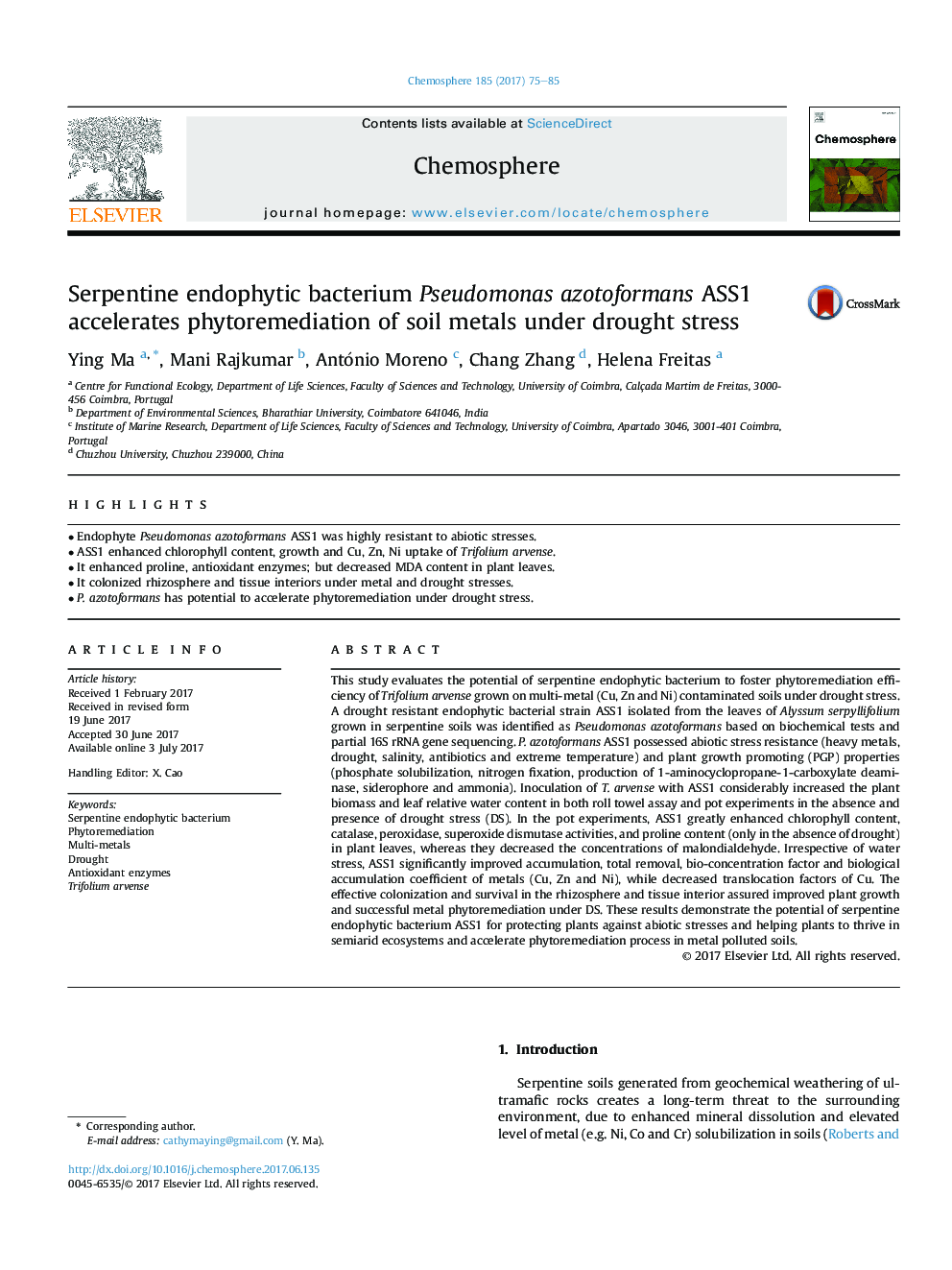| Article ID | Journal | Published Year | Pages | File Type |
|---|---|---|---|---|
| 5746773 | Chemosphere | 2017 | 11 Pages |
â¢Endophyte Pseudomonas azotoformans ASS1 was highly resistant to abiotic stresses.â¢ASS1 enhanced chlorophyll content, growth and Cu, Zn, Ni uptake of Trifolium arvense.â¢It enhanced proline, antioxidant enzymes; but decreased MDA content in plant leaves.â¢It colonized rhizosphere and tissue interiors under metal and drought stresses.â¢P. azotoformans has potential to accelerate phytoremediation under drought stress.
This study evaluates the potential of serpentine endophytic bacterium to foster phytoremediation efficiency of Trifolium arvense grown on multi-metal (Cu, Zn and Ni) contaminated soils under drought stress. A drought resistant endophytic bacterial strain ASS1 isolated from the leaves of Alyssum serpyllifolium grown in serpentine soils was identified as Pseudomonas azotoformans based on biochemical tests and partial 16S rRNA gene sequencing. P. azotoformans ASS1 possessed abiotic stress resistance (heavy metals, drought, salinity, antibiotics and extreme temperature) and plant growth promoting (PGP) properties (phosphate solubilization, nitrogen fixation, production of 1-aminocyclopropane-1-carboxylate deaminase, siderophore and ammonia). Inoculation of T. arvense with ASS1 considerably increased the plant biomass and leaf relative water content in both roll towel assay and pot experiments in the absence and presence of drought stress (DS). In the pot experiments, ASS1 greatly enhanced chlorophyll content, catalase, peroxidase, superoxide dismutase activities, and proline content (only in the absence of drought) in plant leaves, whereas they decreased the concentrations of malondialdehyde. Irrespective of water stress, ASS1 significantly improved accumulation, total removal, bio-concentration factor and biological accumulation coefficient of metals (Cu, Zn and Ni), while decreased translocation factors of Cu. The effective colonization and survival in the rhizosphere and tissue interior assured improved plant growth and successful metal phytoremediation under DS. These results demonstrate the potential of serpentine endophytic bacterium ASS1 for protecting plants against abiotic stresses and helping plants to thrive in semiarid ecosystems and accelerate phytoremediation process in metal polluted soils.
